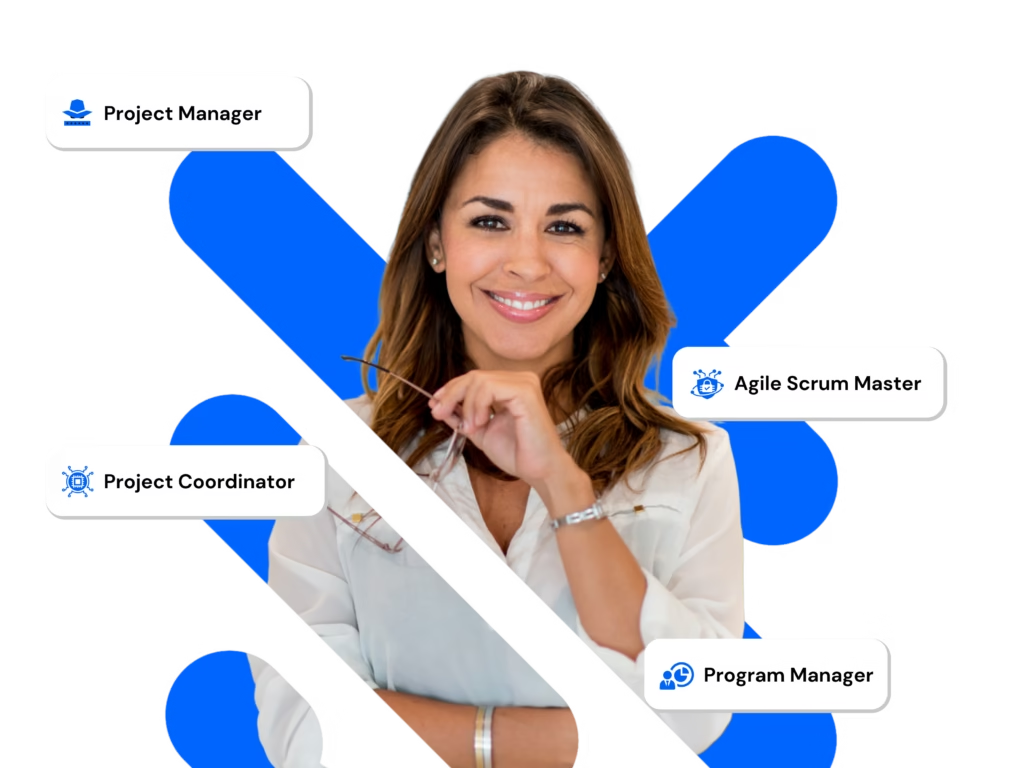
PRINCE2 Practitioner Certification is an advanced project management qualification that demonstrates an individual’s ability to apply the PRINCE2 (Projects IN Controlled Environments) methodology in a real-world context. This certification builds on the foundational knowledge gained in the PRINCE2 Foundation level and focuses on the practical application of the PRINCE2 principles, themes, and processes to effectively manage projects.
The PRINCE2 Practitioner Certification is aimed at project managers and those involved in project delivery who want to enhance their skills in managing projects successfully. It equips certified professionals with the tools to tailor PRINCE2 methodologies to suit the needs of specific projects, ensuring that they can lead teams effectively and achieve project objectives within defined constraints such as time, quality, and cost. In this article, we will explore the value of PRINCE2 Practitioner certification in the job market, examining its benefits, demand, and impact on career opportunities.
Table of Contents
Introduction to PRINCE2 Practitioner Certification
The PRINCE2 Practitioner Certification is an advanced project management qualification that enables professionals to apply the PRINCE2 methodology in real-world project scenarios. It goes beyond theoretical knowledge, focusing on practical skills needed to tailor PRINCE2 principles, themes, and processes to meet specific project needs. This certification is ideal for project managers and those involved in project delivery, as it demonstrates their ability to lead and manage complex projects efficiently, ensuring alignment with business goals, budgets, and timelines.
Recognized globally across industries such as IT, finance, construction, and government, PRINCE2 Practitioner certification enhances your credibility and employability. It is highly sought after by employers looking for qualified professionals capable of delivering projects successfully, making it a valuable step for anyone looking to advance in the project management field.
Overview of PRINCE2 Methodology
PRINCE2 (Projects IN Controlled Environments) is a structured project management methodology widely recognized for its ability to provide clear processes and control throughout the project lifecycle. Developed by the UK government, PRINCE2 is now a globally recognized standard used in various industries, including IT, construction, and finance.
The methodology is based on seven principles, seven themes, and seven processes that guide project managers in planning, managing, and closing projects. Its flexibility allows it to be tailored to suit projects of any size or complexity, ensuring that it can adapt to different organizational environments.
Key Principles of PRINCE2
| Key Elements of PRINCE2 | Description |
|---|---|
| Seven Principles | Foundational guidelines like managing by stages, focusing on products, and learning from experience. These ensure the project is aligned with business objectives and adaptable. |
| Seven Themes | Aspects such as risk, quality, progress, organization, and change management that provide a structured approach for effective decision-making throughout the project lifecycle. |
| Seven Processes | Step-by-step processes that guide projects from initiation to completion, defining key activities, roles, and responsibilities at every stage. |
Benefits of PRINCE2
| Benefits of PRINCE2 | Description |
|---|---|
| Scalability | PRINCE2 can be adapted to fit projects of any size or complexity, making it flexible for various industries. |
| Clear Governance | It clearly defines roles and responsibilities, ensuring strong project oversight and control. |
| Focus on Deliverables | Emphasizes delivering outputs that meet the agreed-upon quality and business objectives. |
| Risk and Quality Management | Systematic processes for identifying and managing risks, as well as ensuring the quality of deliverables. |
| Increased Control | The methodology’s stage-based management approach allows for better control and monitoring at each stage of the project. |
Components of PRINCE2 Methodology
Here’s a concise table summarizing the components of the PRINCE2 Methodology:
| Component | Description |
|---|---|
| Seven Principles | Core guidelines that ensure effective project management, such as continued business justification and defined roles. |
| Seven Themes | Key aspects that provide a structured approach to managing projects, including business case, quality, and risk management. |
| Seven Processes | Step-by-step phases guiding projects from initiation to closure, covering processes like starting up a project and managing stage boundaries. |
| Tailoring PRINCE2 | Emphasizes adapting the methodology to fit the specific project environment, ensuring relevance and effectiveness. |
Benefits of PRINCE2 Practitioner Certification
Ready to unlock the treasure chest of benefits that come with PRINCE2 Practitioner Certification Buckle up, because you’re about to level up your project management game like never before.
Enhanced Project Management Skills

Enhanced Project Management Skills refer to the advanced abilities and techniques that professionals develop to effectively plan, execute, monitor, and close projects. These skills are essential for ensuring project success and include a combination of technical and soft skills. Below are key aspects that contribute to enhanced project management skills:-
| Skill Type | Description |
|---|---|
| Leadership | Inspire and motivate teams while managing conflict. |
| Communication | Clearly convey information to stakeholders and team members. |
| Risk Management | Identify and mitigate potential project risks. |
| Time Management | Prioritize tasks and manage schedules effectively. |
| Problem-Solving | Analyze challenges and develop effective solutions. |
Benefits of Enhanced Project Management Skills
Here’s a simplified table with five key benefits of enhanced project management skills:
| Benefit | Description |
|---|---|
| Improved Project Success Rates | Leads to better planning and execution, resulting in successful project completion. |
| Higher Stakeholder Satisfaction | Increases satisfaction and support through effective communication and engagement. |
| Increased Efficiency | Streamlines workflows, reducing costs and time wastage through effective resource management. |
| Better Risk Mitigation | Enables proactive identification and addressing of potential issues, minimizing disruptions. |
| Career Advancement | Enhances employability and opens opportunities for higher-level positions in various industries. |
Global Recognition and Credibility
Global Recognition and Credibility are crucial aspects of the PRINCE2 Practitioner certification, a widely respected project management certification that significantly impacts career trajectories and opportunities. Global recognition means that a certification like PRINCE2 is acknowledged and respected across various countries and industries, which can open doors to a wider range of job opportunities for professionals. This is particularly important in today’s interconnected world, where organizations often operate on a global scale and seek individuals who possess universally recognized qualifications.
Holding a certification like PRINCE2 not only enhances employability but also provides a competitive advantage over peers who may not have such credentials. Furthermore, the PRINCE2 job market impact is profound, as employers often prioritize candidates with this certification, believing they possess the necessary skills and knowledge to perform effectively in their roles. Additionally, professionals with PRINCE2 certification often see a salary increase, as the credential demonstrates advanced project management expertise.
The established credibility that comes with earning this certification fosters increased trust among employers, who are more inclined to hire certified candidates. Moreover, professionals with globally recognized certifications gain enhanced reputations within their fields, leading to better networking opportunities and relationships with industry peers. Ultimately, global recognition and credibility through certifications like PRINCE2 not only elevate career prospects and increase salaries but also establish professionals as credible experts in project management, positioning them for long-term success in their careers.
Demand for PRINCE2 Practitioners in the Job Market
Wondering if PRINCE2 Practitioner Certification is worth its weight in gold in the job market? Let’s take a deep dive into the current job market trends and see why employers are on the hunt for PRINCE2-savvy professionals.
Industries Seeking PRINCE2 Practitioners
The demand for PRINCE2 (Projects IN Controlled Environments) practitioners is on the rise across various industries due to the structured and effective approach to project management that this certification offers. In the Information Technology (IT) sector, PRINCE2 practitioners are essential for managing software development, infrastructure projects, and IT service management, where control and organization are crucial. The construction industry also values these practitioners for overseeing projects and ensuring timely completion within budget constraints while maintaining quality standards.
Similarly, telecommunications companies rely on PRINCE2 methodologies to navigate complex projects, including network upgrades and service launches, often requiring coordination among multiple stakeholders. In the healthcare sector, PRINCE2 practitioners manage projects related to system implementations and facility upgrades, where compliance with regulations is vital to enhancing patient care. The finance and banking industries employ these professionals to manage projects focused on product development and regulatory compliance, utilizing a structured approach to mitigate risks.
Salary Potential for Certified Practitioners
Here’s a table outlining the Salary Potential for Certified PRINCE2 Practitioners based on experience levels:
| Experience Level | Salary Range (Annual) | Typical Roles |
|---|---|---|
| Entry-Level | $55,000 – $70,000 | Project Coordinator, Junior Project Manager |
| Mid-Level | $70,000 – $100,000 | Project Manager, Project Lead |
| Senior-Level | $100,000 – $130,000+ | Program Manager, Project Director |
Factors Influencing the Value of PRINCE2 Certification
Several factors can influence the value of PRINCE2 certification in the job market, including experience level and industry relevance. Additionally, continuing professional development plays a crucial role in maintaining the certification’s value over time.
Experience Level and Industry Relevance
Here’s a concise table outlining the Experience Level and Industry Relevance for PRINCE2 practitioners:
| Experience Level | Typical Roles | Salary Range (Annual) | Industries |
|---|---|---|---|
| Entry-Level | Project Coordinator, Junior Project Manager | $55,000 – $70,000 | IT, Construction, Retail |
| Mid-Level | Project Manager, Project Lead | $70,000 – $100,000 | Healthcare, Finance, Telecommunications |
| Senior-Level | Program Manager, Project Director | $100,000 – $130,000+ | Energy, Utilities, Manufacturing |
Comparison with Other Project Management Certifications

PRINCE2 certification offers unique features that distinguish it from other project management certifications, providing advantages that set it apart in the job market.
| Aspect | PRINCE2 Certification | PMP (Project Management Professional) | Agile Certifications |
|---|---|---|---|
| Focus | Process-driven methodology emphasizing structured project management. | Comprehensive approach covering a wide range of project management practices. | Flexible and iterative methodologies focused on adapting to change. |
| Methodology | PRINCE2 provides a specific framework with defined processes and roles. | PMP covers various methodologies, including Agile, Waterfall, and Lean. | Agile certifications (e.g., Scrum Master, PMI-ACP) focus on Agile practices. |
| Certification Levels | Offers Foundation and Practitioner levels; no renewal needed. | One main level, but requires ongoing PDUs (Professional Development Units) for renewal. | Typically one certification level; renewal requirements vary by certification. |
| Target Audience | Suitable for professionals in any industry, especially in structured environments. | Designed for experienced project managers across various industries. | Ideal for teams and organizations using Agile methodologies, primarily in IT and software development. |
| Job Market Recognition | Highly recognized in the UK and Europe; growing recognition globally. | Globally recognized as a leading project management certification. | Gaining popularity, especially in tech and industries adopting Agile practices. |
Distinguishing Features of PRINCE2
PRINCE2 (Projects IN Controlled Environments) is a structured project management methodology that is widely recognized for its comprehensive framework and approach to managing projects. Here are some of its key distinguishing features:
- Process-Based Approach: PRINCE2 is organized into distinct processes that guide project management from initiation to closure. Each process has defined inputs, outputs, and activities, ensuring a systematic approach to project management.
- Focus on Deliverables: The methodology emphasizes the delivery of outputs and outcomes rather than just completing tasks. This deliverables-focused approach helps ensure that projects meet their objectives and provide value to stakeholders.
- Defined Roles and Responsibilities: PRINCE2 clearly defines roles and responsibilities within the project team. This clarity helps streamline communication and accountability, ensuring everyone understands their contributions and obligations.
- Adaptability and Flexibility: While PRINCE2 provides a structured framework, it is also adaptable to different project sizes, types, and complexities. This flexibility allows organizations to tailor the methodology to suit their specific needs.
- Emphasis on Business Justification: PRINCE2 requires a continuous focus on business justification throughout the project lifecycle. This ensures that projects remain aligned with organizational goals and that resources are allocated effectively.
- Risk Management: The methodology incorporates proactive risk management practices, enabling project teams to identify, assess, and mitigate risks early in the project lifecycle.
- Regular Reviews and Assessments: PRINCE2 emphasizes the importance of regular reviews and assessments at various stages of the project. This helps ensure that the project stays on track and can adapt to changes as necessary.
- Documentation and Controls: PRINCE2 encourages thorough documentation and control mechanisms to track project progress and performance. This focus on documentation aids in accountability and facilitates better communication among stakeholders.
- Training and Certification: PRINCE2 offers a well-structured training and certification program, providing project managers with the skills and knowledge necessary to implement the methodology effectively.
Explore More on: Is the CTIA Certification Right for Your Career?
FAQ:-
What is the difference between PRINCE2 Foundation and Practitioner certifications?
PRINCE2 Foundation provides an understanding of the PRINCE2 methodology and terminology, focusing on the principles and concepts. In contrast, the Practitioner certification validates your ability to apply PRINCE2 in real project scenarios, demonstrating practical knowledge and skills in managing projects.
How does PRINCE2 certification compare to other project management certifications like PMP or Agile?
PRINCE2 is process-driven and structured, emphasizing deliverables and project controls, while PMP (Project Management Professional) focuses on a broad spectrum of project management principles and practices. Agile certifications, on the other hand, prioritize flexibility and iterative progress, making them suitable for dynamic project environments.
Can PRINCE2 Practitioner certification help me transition into a project management role?
Yes, obtaining the PRINCE2 Practitioner certification can significantly enhance your credibility and skill set, making you a more attractive candidate for project management roles. It provides a solid foundation in project management principles and practices, facilitating your transition into the field.
Is it necessary to renew or maintain PRINCE2 Practitioner certification over time?
PRINCE2 certifications do not expire, but it is recommended to keep your knowledge up-to-date with the latest practices and versions. Engaging in continuous professional development and participating in relevant training can help you stay current in the field.





